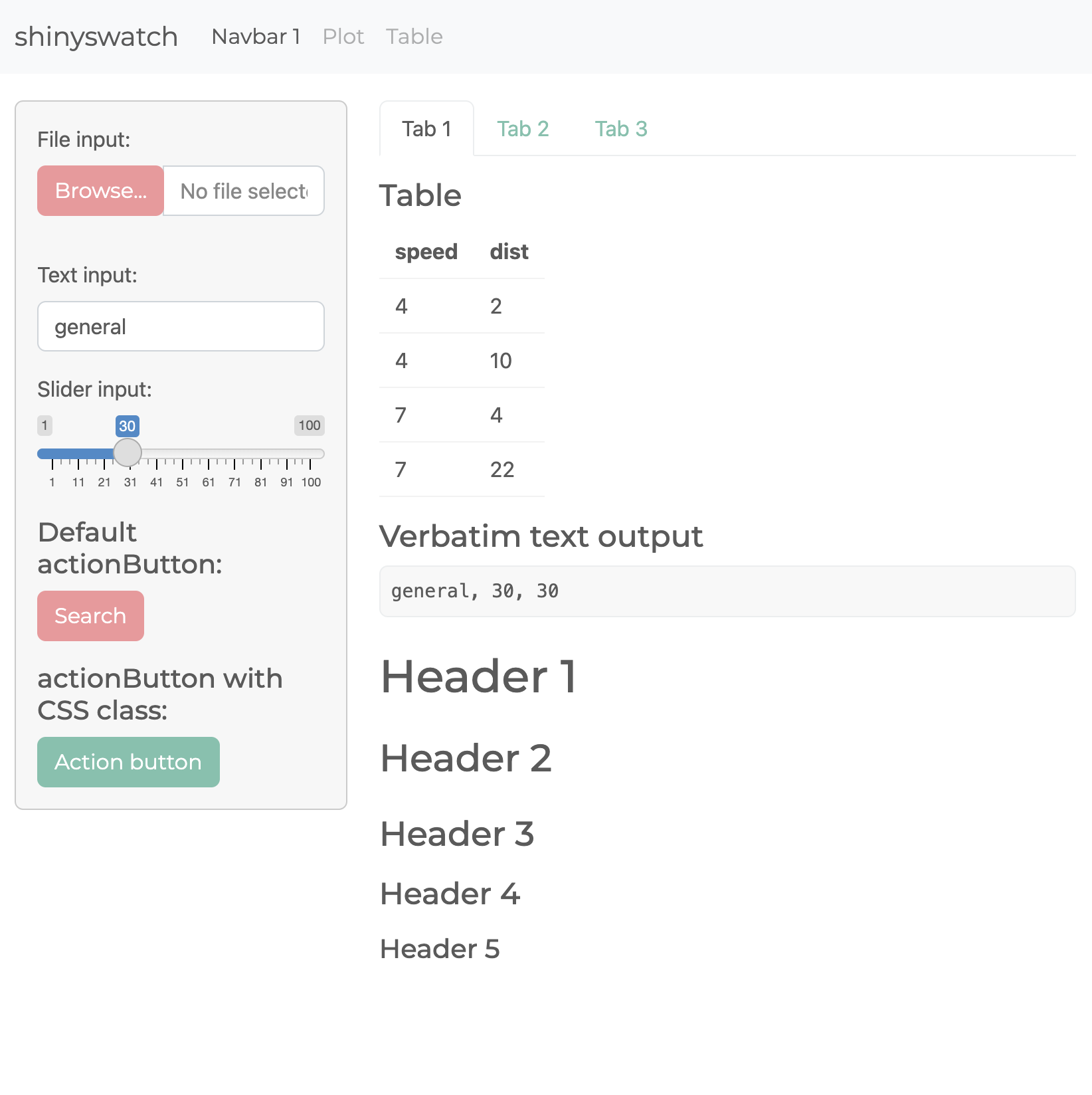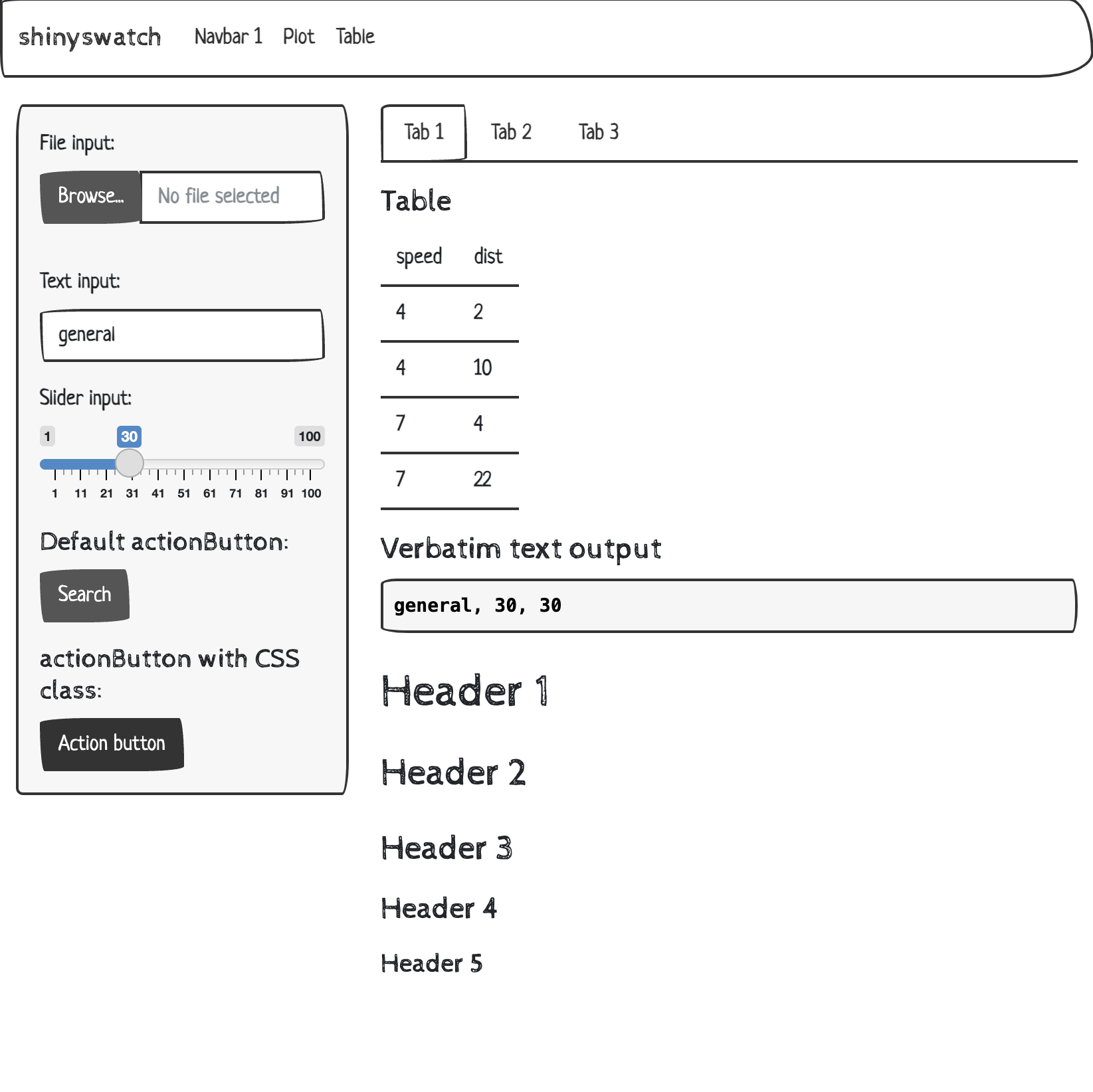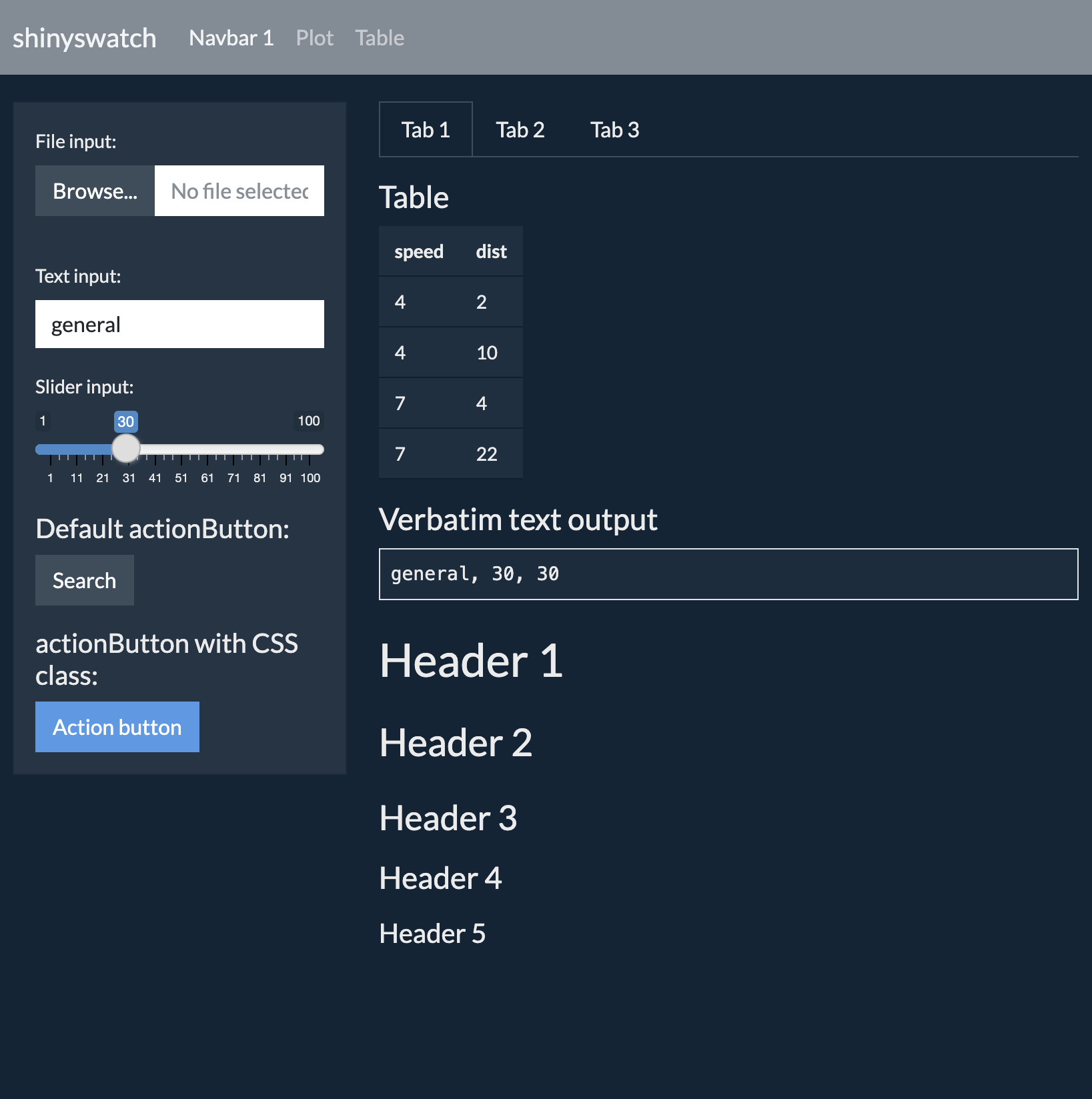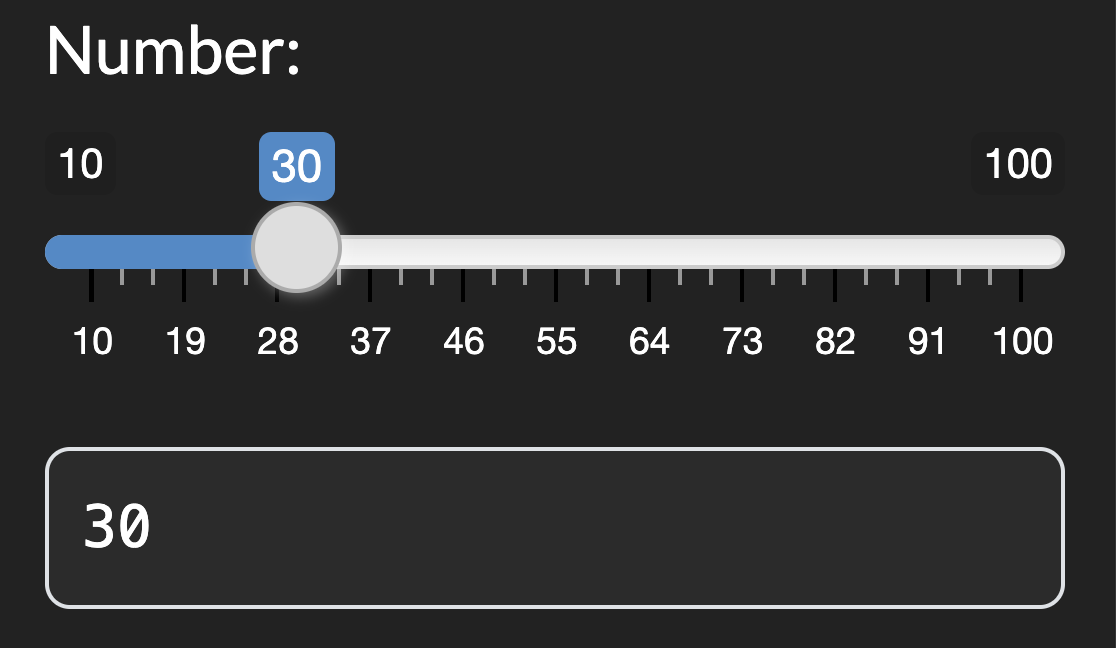Bootswatch + Bootstrap 5 themes for Shiny.
Here are just three of the 25 themes in shinyswatch:
| Minty | Sketchy | Superhero |
|---|---|---|
 |
 |
 |
pip install shinyswatchTo install the latest development version from this repository:
pip install https://github.com/rstudio/py-shinyswatch/tarball/mainTo use a theme, add a shinyswatch.theme theme object to your App’s UI
definition.
# Minty theme
shinyswatch.theme.minty
# Sketchy theme
shinyswatch.theme.sketchy
# Superhero theme
shinyswatch.theme.superheroExample Shiny application:
File: app.py
|
Screenshot |
|---|---|
from shiny import App, Inputs, Outputs, Session, render, ui
import shinyswatch
app_ui = ui.page_fluid(
ui.input_slider("num", "Number:", min=10, max=100, value=30),
ui.output_text_verbatim("slider_val"),
theme=shinyswatch.theme.darkly, # <- Use a shinyswatch theme here
)
def server(input: Inputs, output: Outputs, session: Session):
@output
@render.text
def slider_val():
return f"{input.num()}"
app = App(app_ui, server) |
Note: When writing shiny apps that use shinyswatch on shinylive.io, remember to add
shinyswatchto yourrequirements.txtfile!
To add a theme picker to your app, add the theme picker UI and server functions to your app’s UI and server definitions.
Demo theme picker app on shinylive.io.
shinyswatch themes include a .colors attribute that can be used to
theme plots or other outputs and UI elements. In the example below, try
changing the theme and re-running the app to see how the plot changes.
Demo plot theming app on shinylive.io.
If you want to do development on shinyswatch for Python:
pip install -e ".[dev,test,docs]"There are multiple examples in the shinyswatch repo.
To run the demos locally, you can run the examples by calling:
python3 -m shiny run examples/basic-darkly/app.py
python3 -m shiny run examples/big-sketchy/app.py
python3 -m shiny run examples/components/app.py
python3 -m shiny run examples/theme-picker/app.py